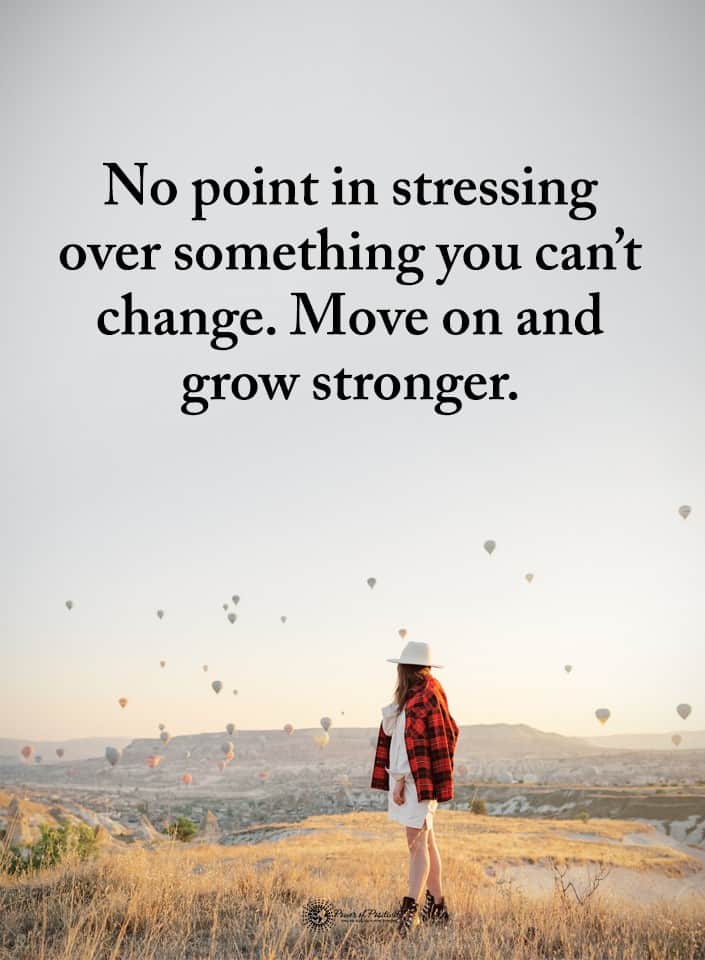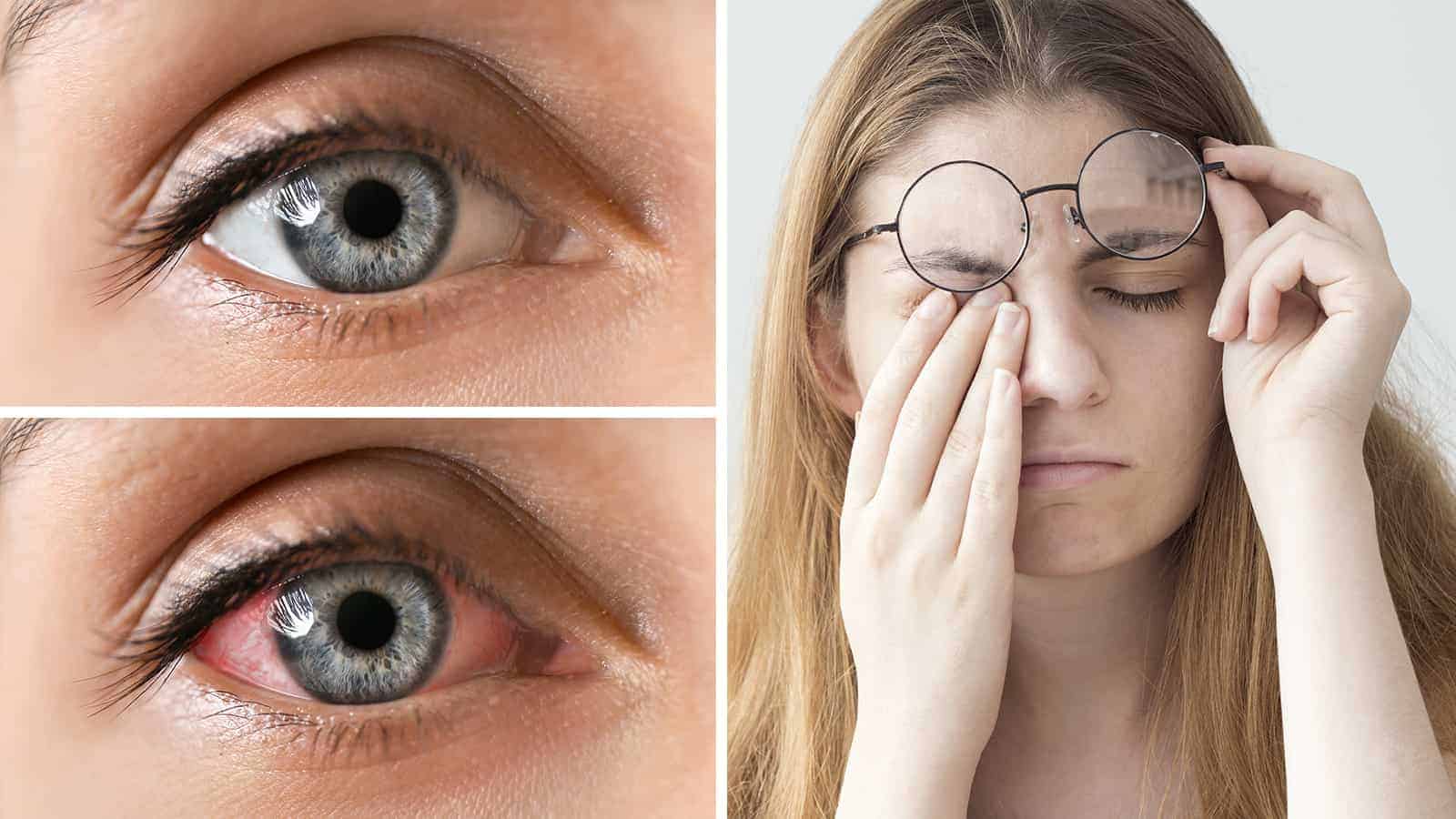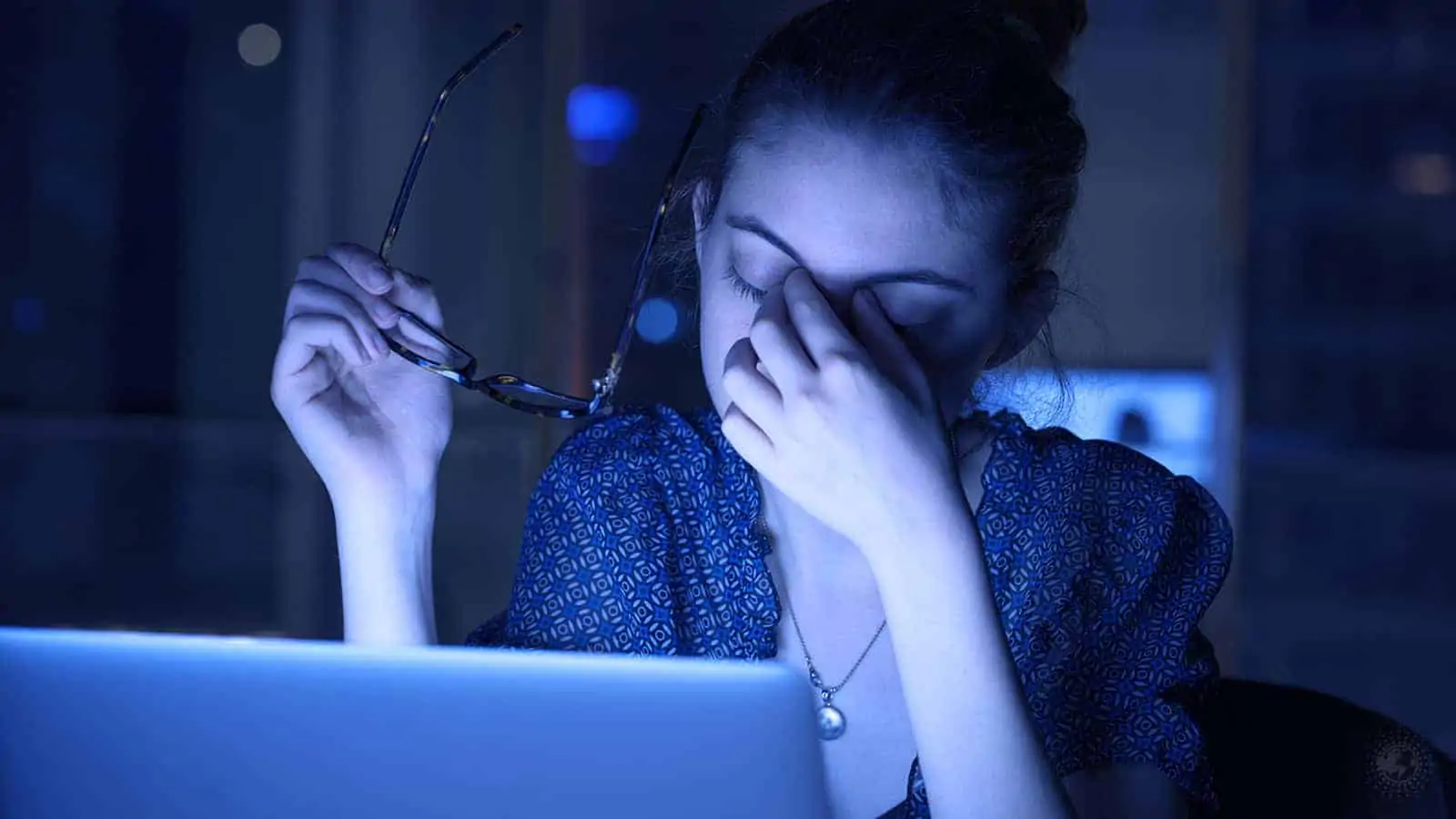Do you often feel a burning sensation and weakness in your eyes? Is your vision blurry, and do your eyes feel itchy? You may be experiencing eye fatigue.
From the moment you awaken in the morning, your eyes stay busy absorbing colors, shapes, and movement for your brain to interpret. With the added burden of reading and technology, it’s no wonder your eyes are exhausted.
Ways to Fight Eye Fatigue
If you’ve had your share of eye strain, there are ways you can remedy it. Of course, any chronic or severe vision problems should be referred to your primary healthcare provider. Here are some ways you can help your eyes every day.
 1. Give Your Peepers a Break
1. Give Your Peepers a Break
If you have a job that requires closeup reading and computer tasks, your eyes can be going full strength for eight hours or more. Even at home, you can put undue pressure on your peepers when surfing the internet, watching TV, reading, or playing video games. When do your eyes get a break?
Just like every other part of your body, your eyes need a little rest between tasks. Consider using a timer as a reminder. Set your timer to sound every 20 minutes. The recommended 20-20-20 rule means rest every 20 minutes and focuses on something at least 20 feet away for 20 seconds.
2. A Little Drop Will Do You
Another great way to ease eye fatigue is to use eye drops. Sometimes, your eyes get tired, dry, and itchy because they are overworked, and the room’s atmosphere is arid. Consider using simple over-the-counter eye drops to lubricate your eyes.
These drops can also gently flush away any microscopic dust or irritants that are bothering you. Some are formulated to reduce redness, and some add extra lubrication. Keep a bottle handy at work, home, in the car, or your purse.
3. Remove Your Contacts at Night
Isn’t it amazing that actors in movies and soap operas awaken in the morning with perfect hair, makeup, and shiny contacts? That’s Hollywood and not reality. In the real world, you can jeopardize your vision health by sleeping in your contacts.
Just because your contacts say “extended wear” doesn’t mean they’re safe for a night of slumber. According to an article published by the American Academy of Optometry, sleeping in contact lenses can deprive your eyes of oxygen and cause eye infections and corneal ulcers.
Reduce eye fatigue, minimize your risks of infections, and remember to take your contact lenses out before you nap or retire for the night. It’s also a good practice to wash your hands before touching your eyes to remove the contacts. Always remember to keep your lenses in a sterile saline solution overnight.
4. Consider Wearing Reading Glasses
Whether you do a lot of reading for work or pleasure, it keeps your eyes busy. If you must strain to see the print, you can wear your eyes out quickly. You may encounter headaches and substantial eye fatigue.
According to guidelines published by the American Academy of Ophthalmology, you should have a complete eye exam by at least age 20. When you get into your 30s, they suggest that you have at least two. But what if tests conclude that your eyes are healthy, and you don’t need prescription lenses?
As you get older, you may not need glasses, but you may still have problems reading print. In that case, consider buying a pair of reading glasses. You can find them in most of the styles that you like with the lens strength you need.
When you wear these glasses for reading, your eyes don’t need to strain, and you can reduce eye fatigue. Most department stores and pharmacies sell brands at different prices to fit your budget.
5. Get Enough Sleep
Do you get enough sleep at night, or do you toss and turn and watch the clock? An article published by the American Sleep Apnea Association reports that 50-70 million people in America have sleep issues. At least 11 percent of Americans say they don’t get enough sleep each night.
Did you know that sleep deprivation can also affect your eyes? Not getting enough sleep can leave your eyes bloodshot and blurry. Additionally, sleep deprivation can cause eye cramps, spasms, and lead to vision disorders over time.
For optimal health and kindness to your eyes, try to get enough sleep every night. Adults need at least seven hours of rest. If you’re not getting enough sleep, it may be the culprit for your eye fatigue.
6. Be Tech Savvy
Do you feel eye strain when you are working on your computer or another technical device? You may be experiencing what vision experts call digital eye strain. A press release from the Vision Council states 80 percent of American adults use digital devices at least two hours or more each day.
The report cited other statistics, such as six out of every ten American adults reporting digital eye strain. This condition’s symptoms include eye strain, blurry vision, dry eyes, headache, and neck/shoulder pain, per the report.
According to an article published by the American Academy of Ophthalmology, so-called computer glasses don’t help eye strain. Instead, they recommend that you use a matte screen on your monitor to reduce the glare, sit an arm’s length distance from it, and take regular breaks.
Additionally, you should consider using blue light glasses as they’ve been proven to be beneficial.
7. Blink Frequently
Most people ignore how many times they blink. This rapid eye movement keeps your eyes lubricated. When you are staring at a book or a computer, you need to blink more often to reduce possible eye strain.
8. Let There Be Light
When you don’t have enough light in the room, your eyes must work harder to see print. After a while, bad lighting can give you a headache and eye fatigue. When you are reading or using technical devices, be sure to do it in a well-lit area.
9. Give Your Eyes a Massage
Your eyes do a lot of work for you every day, so naturally, they would appreciate a little pampering. The next time they feel a bit strained, consider giving your eyes a massage. Start by rubbing your hands briskly together to produce a little heat.
Then, gently massage your closed eyes for a few moments with your warm hands. You can also lightly cup your hands over your closed eyes and just allow the warmth to soothe them. Do this every 20 minutes or so when you are working.
10. Remember Your Vitamins
Just like the rest of your body’s organs, your eyes need proper nutrition to be healthy and function optimally. The American Optometric Association recommends eye-healthy foods that are high in essential vitamins and minerals. These include Vitamins A, E, C, zinc, essential fatty acids, and lutein.
11. Try Eye Exercises
Your eyes can benefit from regular exercise the same way the rest of your body can. Consider doing a few exercises while you are taking a little break from reading or technology. First, focus on something about 20 feet away for 20 seconds, then focus on something close for another 20 seconds. Try to do at least ten repetitions.
12. Optimize Your Workstation
How friendly is your workstation to your eyes? Your computer screen should be about 20-24 inches from your range of vision. The center focus of your monitor should be about 10-15 degrees below your eyes. Not only can this position help minimize eye fatigue, but it can also reduce strain on your head and neck.
13. Check Your Air Quality
When your workspace’s air lacks enough moisture, your eyes are more prone to dry out as well as burn and itch. Consider using a small humidifier that will produce some welcomed relief. If you have allergies, you may consider a HEPA air filter to clear toxins and other microscopic allergens that can affect your eyes.
14. Forget the Fine Print
There’s a good reason that most clauses and conditions on advertisements and contracts are written in the fine print. It isn’t easy to see, and some people may just ignore it altogether. The fine print may be important on legal documents, but you can forget it when it comes to other reading sources.
Modify your computer settings to a font that’s comfortable enough for you to use. Are you tired of straining your eyes on books with small print? Many of your favorite titles are available in eye-friendly larger print.
15. Two for Tea
Do you want to put your steeped herbal tea bags to fair use? Use them as a refreshing warm compress to soothe your eyes. After they’ve cooled a bit, squeeze out excess liquid and place one gently on each eye for about 5-10 minutes.
A study published by Molecular Medical Report states that using chamomile tea topically may help common eye irritations and infections. Plus, the warm tea bag relaxes your tired eye muscles, and the fluid rehydrates the surface of your eyes.
 Final Thoughts on Minimizing Eye Fatigue
Final Thoughts on Minimizing Eye Fatigue
You only have two eyes, and they can’t be replaced. For optimal eye health, get regular check-ups, and give your eyes a break from technology. Your peepers need to rest too.


















